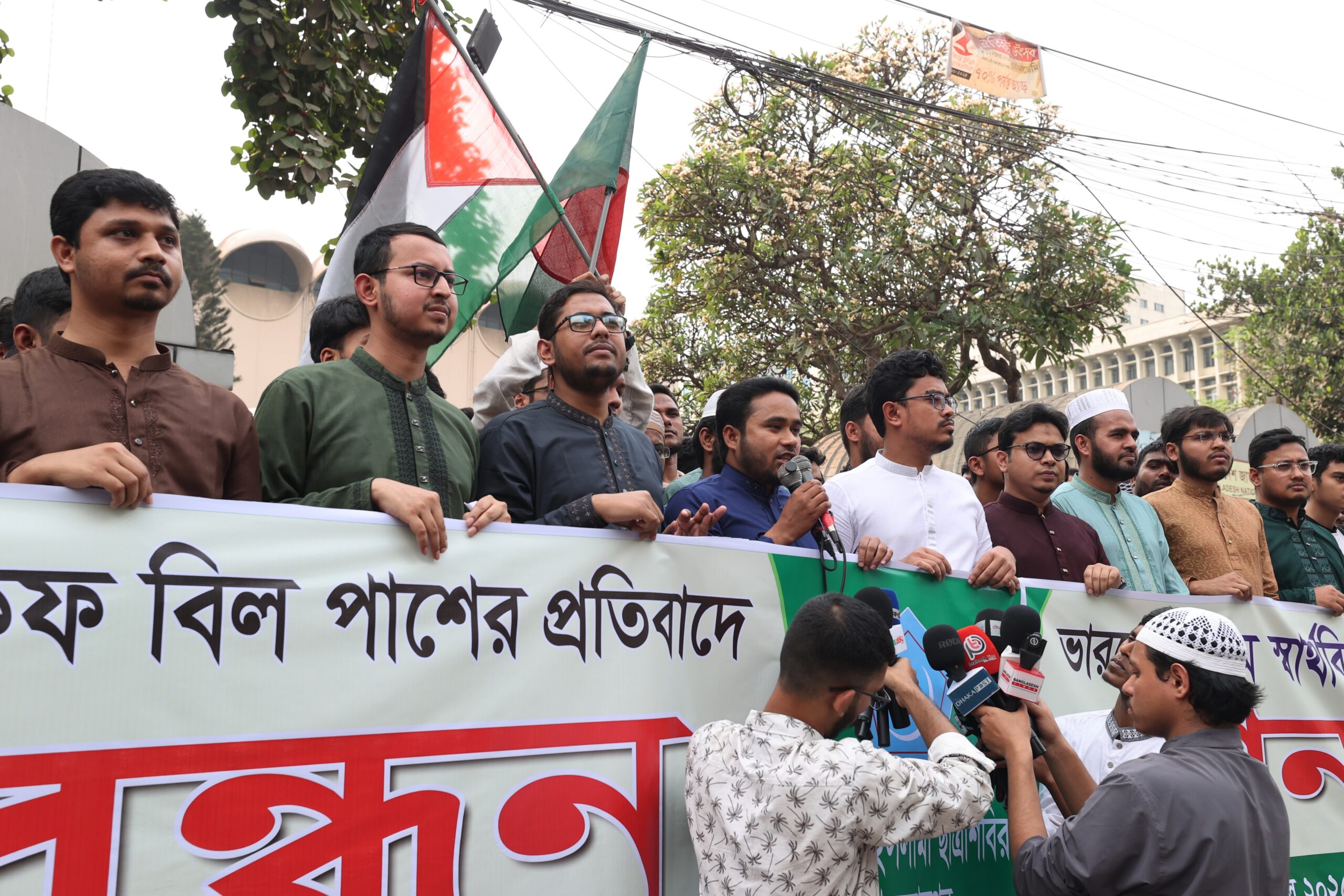
The recent overhaul of India’s Waqf governance laws marks a turning point in the country’s treatment of its Muslim minority. Under the guise of “reform,” the central government has effectively taken control of Muslim religious endowments, marginalizing the very community that these institutions are meant to serve. The new law—replacing the Waqf Act of 1995—dismantles the centuries-old tradition of Muslims independently managing their religious properties and charities. At the heart of the controversy is the reconstitution of the Central Waqf Council and State Waqf Boards. The new legislation mandates that 12 of the 22 members of the Central Waqf Council must be non-Muslims. Similarly, State Waqf Boards are now required to have 7 non-Muslim members out of a total of 11. The remaining four Muslim seats must include two women, further narrowing male Muslim representation. Appointments to all positions—including the crucial post of chairperson—are to be made by the central government.
This is not a neutral bureaucratic change. It is an aggressive political move with cultural and religious ramifications. Waqf institutions are not simply administrative bodies—they are religious trusts founded on Islamic principles of charity and community welfare. For generations, these institutions have managed mosques, madrasas, orphanages, cemeteries, and various social welfare initiatives. Placing these under the control of individuals with no spiritual connection to Islam represents a clear breach of religious autonomy. The government’s justification rests on claims of transparency and accountability. Yet these arguments ring hollow when juxtaposed with how other religious institutions in India are treated. Take the example of Hindu religious boards in Jammu and Kashmir: both the Vaishno Devi Shrine Board and the Amarnath Shrine Board legally require their heads to be Hindus. No Muslim—or person of any other faith—can occupy such positions, even if appointed by the state. These restrictions are enshrined in their respective legislative acts, which remain unchallenged.
In stark contrast, the Muslim community is now expected to accept the dominance of non-Muslims in their own religious affairs. This is not reform—it is imposition. The asymmetry is too glaring to ignore. One community enjoys protected religious management, while the other faces government-engineered dilution of authority. The centralization of appointments further adds to concerns about state overreach. By eliminating any semblance of community involvement in choosing who manages Waqf affairs, the government has effectively nationalized Muslim religious institutions. This is especially alarming in a pluralistic democracy, where freedom of religion is a constitutional right.
Articles 25 to 28 of the Indian Constitution explicitly protect the right of religious communities to manage their own affairs. This new law arguably violates those protections. It disregards the sanctity of religious endowments and undermines the spiritual agency of the Muslim population, which constitutes nearly 15% of India’s population. The broader political context cannot be ignored. The move is consistent with the ruling party’s wider ideological framework, which has increasingly marginalized minorities through policies like the Citizenship Amendment Act, the crackdown in Kashmir, and the bulldozing of Muslim homes during communal tensions. The Waqf Bill is not an isolated reform; it is a continuation of a systematic effort to reduce Muslim visibility and influence in Indian society.
This latest measure also has economic implications. Waqf properties collectively account for one of the largest landholdings in India, valued in trillions of rupees. Critics argue that diluting Muslim control over these assets paves the way for future commercial exploitation under the pretext of “development.” With the government in charge of appointments, the line between religious administration and political patronage becomes dangerously blurred. The response from the Muslim community has been swift and resolute. Religious scholars, political leaders, and civil society organizations have condemned the law as an affront to constitutional values.
Globally, the move has also attracted scrutiny. Human rights organizations and international observers are raising questions about India’s commitment to religious freedom and pluralism. At a time when India is seeking to present itself as a global democratic leader, actions like these cast a long shadow over its credibility. Ultimately, the new Waqf law is more than a policy change—it is a cultural intervention with long-term consequences. It strips Muslims of their right to govern their religious and charitable institutions and places that authority in the hands of those with little connection to the faith. It turns sacred trusts into state-run entities, ignoring both history and constitutional guarantees. If India is to preserve its democratic ethos, this law must be revisited and repealed. Religious autonomy is not a privilege to be granted at the whim of the majority—it is a fundamental right that must be upheld for all communities, equally and without exception.
